How To Reverse Hair Loss From Medication
Tips to combat the side effects of various medicines and boost your overall hair health
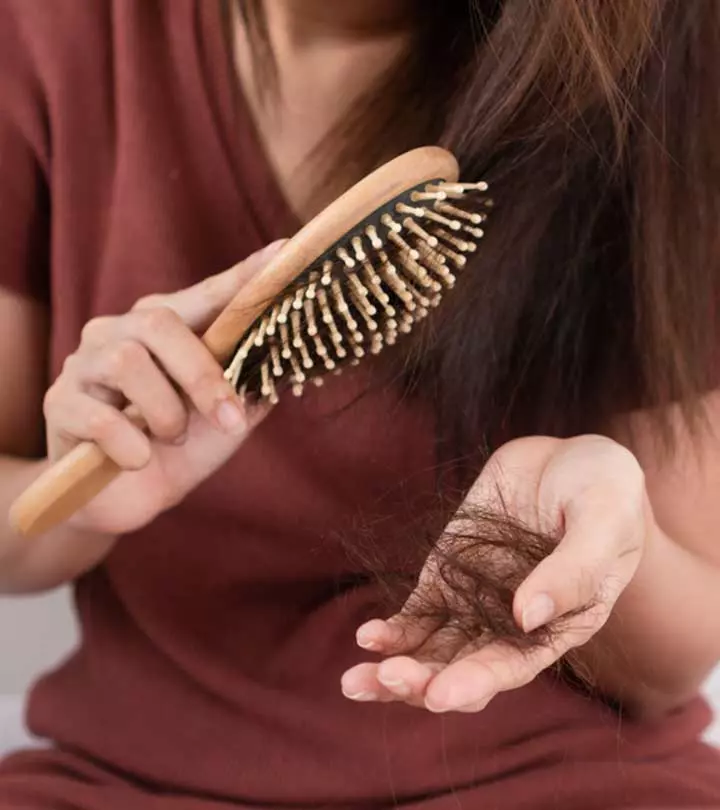
Image: Shutterstock
If you have ever wondered whether it is possible to reverse hair loss from medications, the answer is ’yes.’ Some medications can lead to hair loss as they interfere with the normal hair growth cycle. However, it is a temporary phenomenon. Some of the drugs that may cause hair loss are antibiotics, anticlotting drugs, and cholesterol-lowering drugs, among others.
In this article, we look into how some medications result in hair fall, ways to reverse it, and more. Scroll down to know more.
In This Article
How Medications Cause Hair Loss
Medicines may cause hair loss by interfering with the hair growth cycle. Certain medications may:
- Halt the proliferation of hair matrix cells, causing anagen
- Cause the follicles to enter a premature telogen, leading to telogen effluvium (1).
Anagen is the active growth phase of the hair, where cells divide quickly to promote new hair growth. Telogen is the resting phase, which lasts around 3 to 4 months before hair shedding. In drug-induced anagen effluvium, you will notice hair loss within days or weeks of taking the drug. In telogen effluvium, hair loss becomes prominent after 2-4 months of taking the drug or starting treatment.
Out of these two, telogen effluvium is the most common drug-induced hair loss. The severity of your hair loss depends on the type of drug you are taking. Let’s find out about the types of medications that cause hair loss.
Types of Medication That Causes Hair Loss
- Vitamin A (Retinoids)
The intake of higher amounts of vitamin A supplements and medications may cause hair loss. Moreover, vitamin A derivatives like isotretinoin and tretinoin may also cause hair loss (2).
- Antibiotics
Antibiotics may affect the metabolism of vitamin B12 and folic acid in the body (3). They may also affect the hemoglobin levels, leading to anemia and hair loss. Low levels of vitamin B 12 also interfere with normal hair growth (4).
- Antifungals
Antifungal medications like voriconazole have been linked to alopecia related hair loss (5).
- Blood Thinners
Anticoagulants like heparin and warfarin may induce alopecia and hair loss (6). These medications are generally administered to those who have cardiovascular issues to prevent blood clots.
- Immunosuppressants
Medications that are used to treat autoimmune conditions like rheumatoid arthritis may also cause hair loss. A high dose of immunosuppressants, like methotrexate was found to trigger hair loss (7). However, enough research is lacking in this regard.
In most cases, hair loss is temporary. Here are a few things you can do to prevent drug-induced hair loss.
How To Reverse Hair Loss Caused Due To Medication
- Healthy Diet And Supplements
Following a balanced and healthy diet is a great way to support healthy hair growth. Include omega-3 and 6 fatty acids and antioxidants in your diet to aid hair regrowth (8).
Nutrient deficiencies, including a lack of iron, zinc, biotin, folic acid, and vitamins A and E, may also cause hair loss (9). You may consume a diet rich in red meat, poultry, lentils, legumes, dairy products, whole grains, leafy greens like kale and spinach, avocado, carrots, and sweet potatoes, as they contain essential vitamins and minerals. Also, talk to a dietitian or nutritionist for a balanced diet chart or consult a doctor for vitamin supplements and effective medicines for hair growth.
- Apply Minoxidil
Topical minoxidil is used to Topical minoxidil is used to treat various types of hair loss like alopecia and baldness (10). You have to use it continuously, as prescribed by the doctor, to start seeing the results in 3-6 months. However, remember that improper use of Minoxidil may cause unwanted hair growth, redness, itching, and dizziness in some people (11). Therefore, do not use it unless it is prescribed to you and always follow the doctor’s advice for application.
A blogger shared her experience of applying minoxidil to her scalp for a couple of weeks. She took biotin supplements and massaged minoxidil 3% on her scalp twice a day. She wrote, “Over these last couple of weeks, I’ve observed that my hair loss problem has not exactly ceased; I still shed like a Labrador. However, there appears to be significant hair regrowth on my scalp. My hair is also becoming thicker, to my surprise (i).”
David Carvalhão, another blogger, was almost bald by the time he was 25. He was diagnosed with alopecia and applied minoxidil 5% solution to his scalp along with consuming multivitamins. He mentioned, “When I started also using Minoxidil plus vitamins, I saw a very noticeable difference after 6 weeks of use. My hair looked stronger and I could see new hair growth in areas where I hadn’t seen any for years (ii).”
 Quick Tip
Quick Tip- Pumpkin Seed Oil
Pumpkin seed oil
reduces the effects of 5-alpha reductase, an enzyme that converts testosterone into DHT, a major contributor to hair loss (12). A study done in 2014 found that regular use of pumpkin seed oil over 24 weeks increased hair count by 40% (13). However, more research is needed to determine the effectiveness of pumpkin seed oil fr hair growth.
- Accessories And Wigs
While the hair is still growing, you can use accessories like scarves, caps, and wigs to cover your head.
 Quick Tip
Quick TipWhen To Consult A Doctor
Before starting a medication or treatment, ask your doctor about various side effects. Discuss the ways to minimize drug-induced hair loss with them. If you are losing hair at an alarming rate, do not stop taking the medicines without consulting your doctor. Ask for any alternatives.
Some medications may cause hair loss by disrupting the hair development cycle. However, do not worry, as drug-induced hair loss can be reversed. Talking to a healthcare practitioner as soon as you see the first signs of hair loss can help you identify the actual reason. The solutions may include changing the type of medication, using recommended treatments to decrease or reverse hair loss, or consuming a healthy diet. Within 3-4 months of discontinuing the medicine, most people begin to feel better. Also, maintain a healthy lifestyle and hair care regimen while on medication. This could also assist in reducing the effect.
Frequently Asked Questions
Is hair loss from antidepressants permanent?
No, hair loss from antidepressants is not permanent. Your hair will stop falling out once you stop taking the medications.
How do I stop medication-induced hair loss?
You may have to discontinue the medication or consult a doctor for medication-induced hair loss.
Key Takeaways
- Certain medications such as antibiotics, blood thinners, antifungals, and immunosuppressants can disrupt the normal hair growth cycle, leading to temporary hair loss.
- It is important to consult a doctor if experiencing significant hair loss while on medication they might prescribe supplements and topical treatments, such as minoxidil, to stimulate hair regrowth.
- Maintaining a healthy diet and taking supplements after consulting your doctor may help reverse medication-induced hair loss.
References
Articles on StyleCraze are backed by verified information from peer-reviewed and academic research papers, reputed organizations, research institutions, and medical associations to ensure accuracy and relevance. Read our editorial policy to learn more.
- Drug-induced hair loss and hair growth. Incidence, management and avoidance
https://pubmed.ncbi.nlm.nih.gov/8018303/ - Drug-Induced Hair Loss and Hair Growth
https://link.springer.com/article/10.2165/00002018-199410040-00005 - Drugs producing vitamin deficiencies
https://pubmed.ncbi.nlm.nih.gov/7211625/ - The Role of Vitamins and Minerals in Hair Loss: A Review
https://www.ncbi.nlm.nih.gov/pmc/articles/PMC6380979/ - Alopecia and nail changes associated with voriconazole therapy
https://pubmed.ncbi.nlm.nih.gov/24855150/ - Traditional Anticoagulants and Hair Loss: A Role for Direct Oral Anticoagulants? A Review of the Literature
https://www.ncbi.nlm.nih.gov/pmc/articles/PMC4819463/ - The influence of methotrexate on hair loss while using immunomodulatory doses
https://pubmed.ncbi.nlm.nih.gov/30830893/ - Effect of a nutritional supplement on hair loss in women
https://pubmed.ncbi.nlm.nih.gov/25573272/ - Diet and hair loss: effects of nutrient deficiency and supplement use
https://www.ncbi.nlm.nih.gov/pmc/articles/PMC5315033/ - Minoxidil: mechanisms of action on hair growth
https://pubmed.ncbi.nlm.nih.gov/14996087/ - Compliance to Topical Minoxidil and Reasons for Discontinuation among Patients with Androgenetic Alopecia
https://www.ncbi.nlm.nih.gov/pmc/articles/PMC10149432/ - Beneficial effects of pumpkin seed oil as a topical hair growth promoting agent in a mice model
https://www.ncbi.nlm.nih.gov/pmc/articles/PMC6823528/ - Effect of Pumpkin Seed Oil on Hair Growth in Men with Androgenetic Alopecia: A Randomized, Double-Blind, Placebo-Controlled Trial
https://www.ncbi.nlm.nih.gov/pmc/articles/PMC4017725/
Read full bio of Dr. Hannah Kopelman
Read full bio of Eshna Das
Read full bio of Monomita Chakraborty





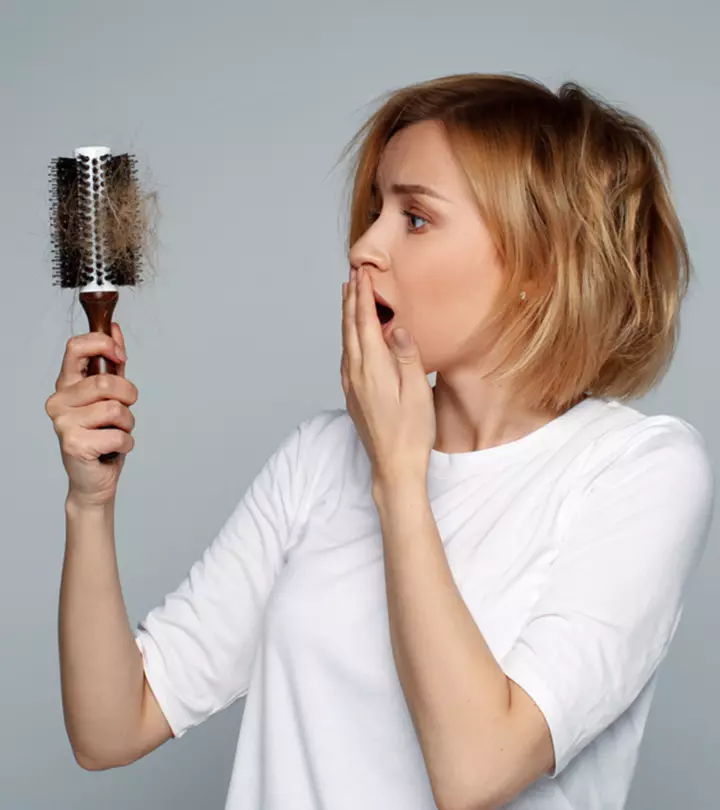
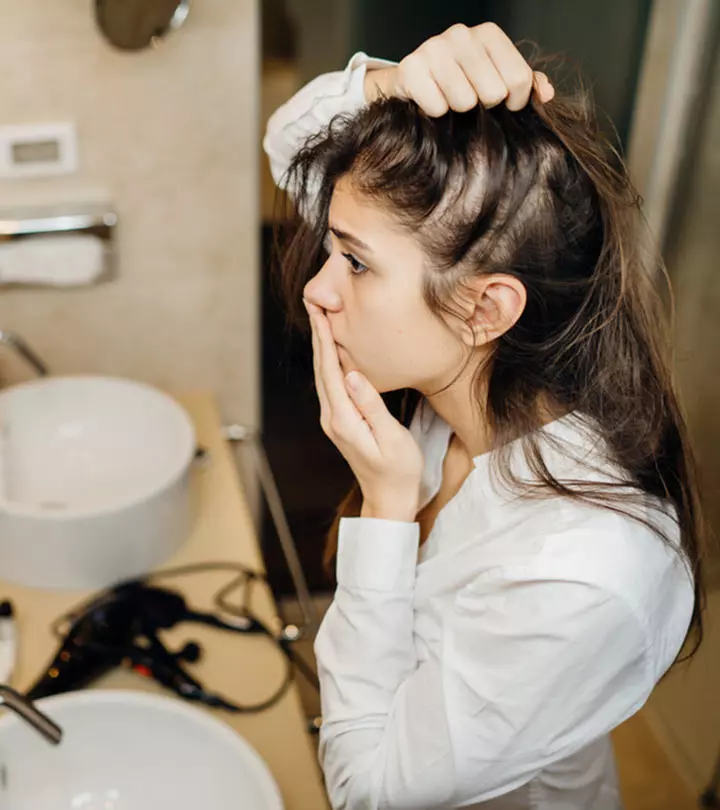
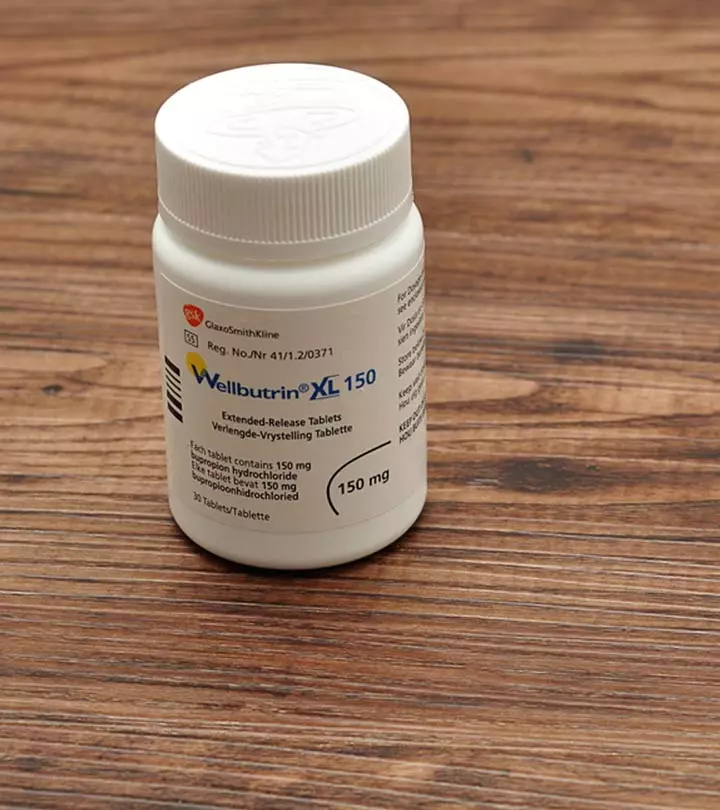
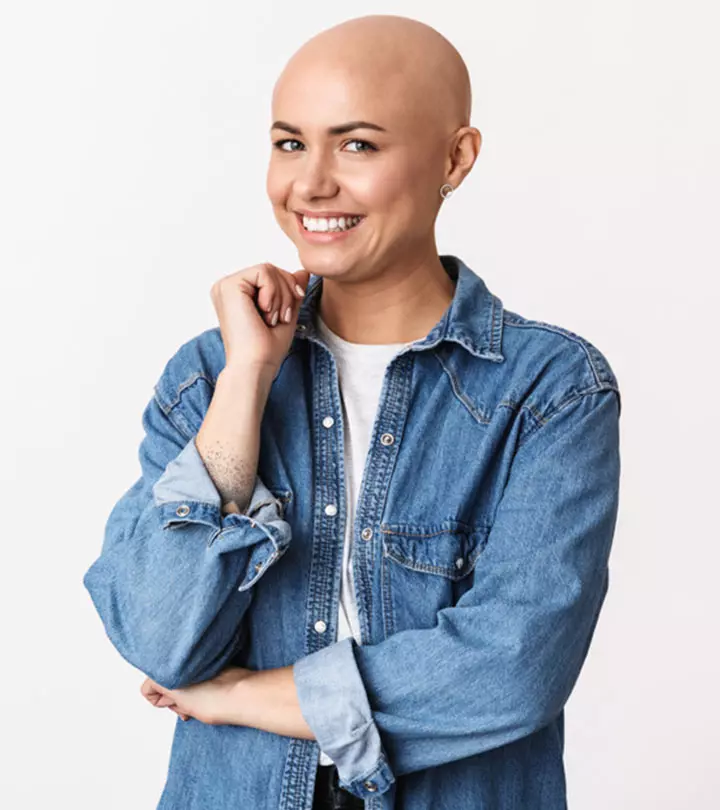
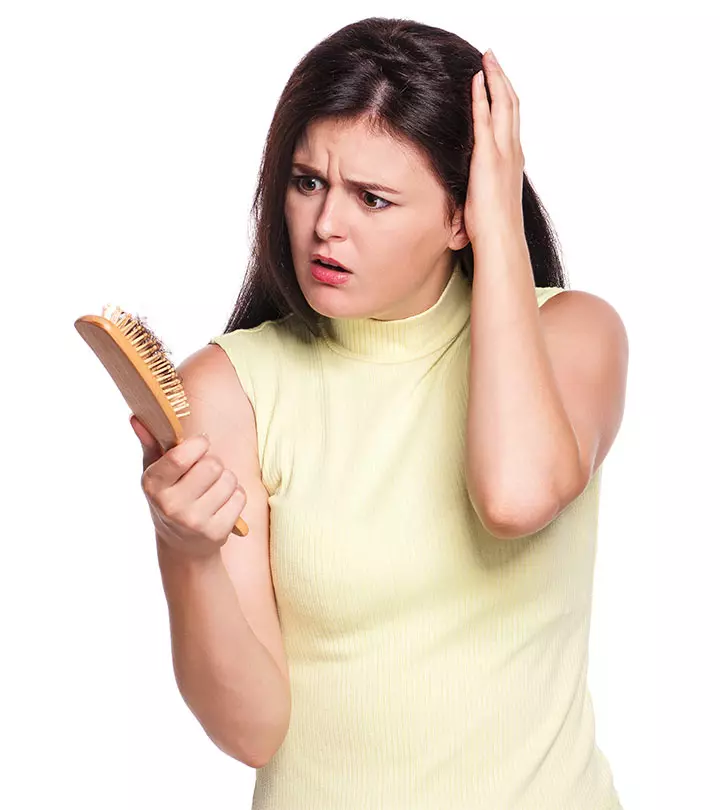
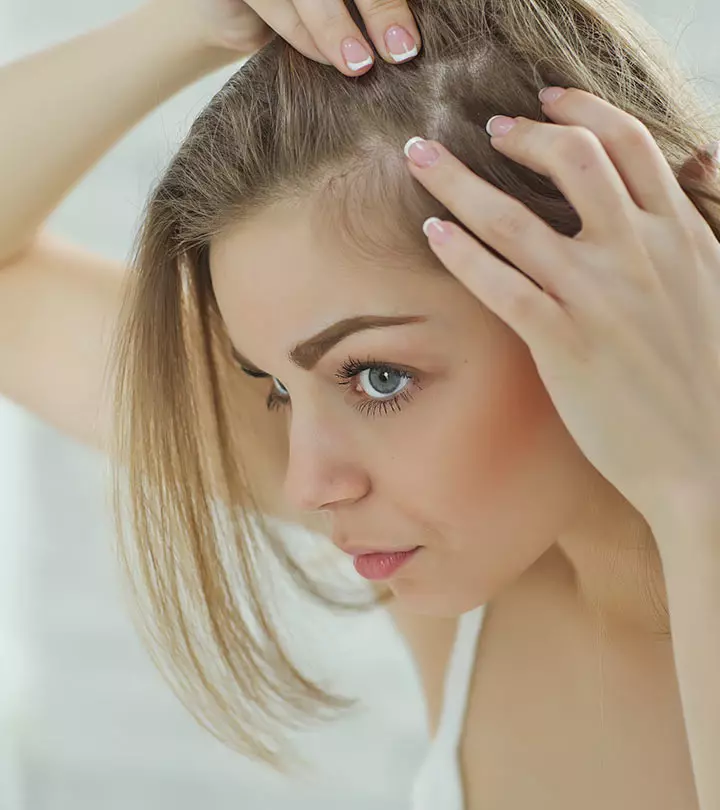
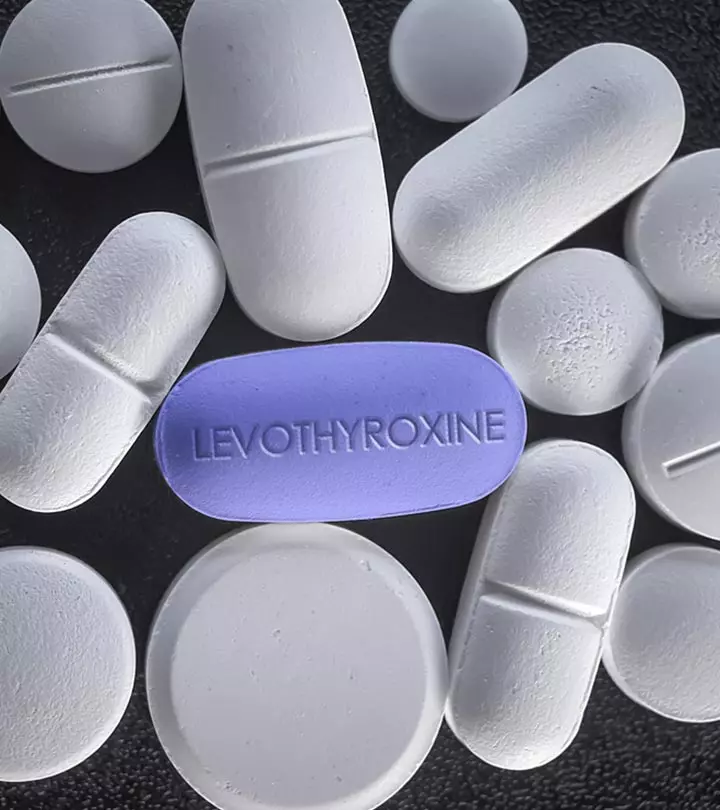
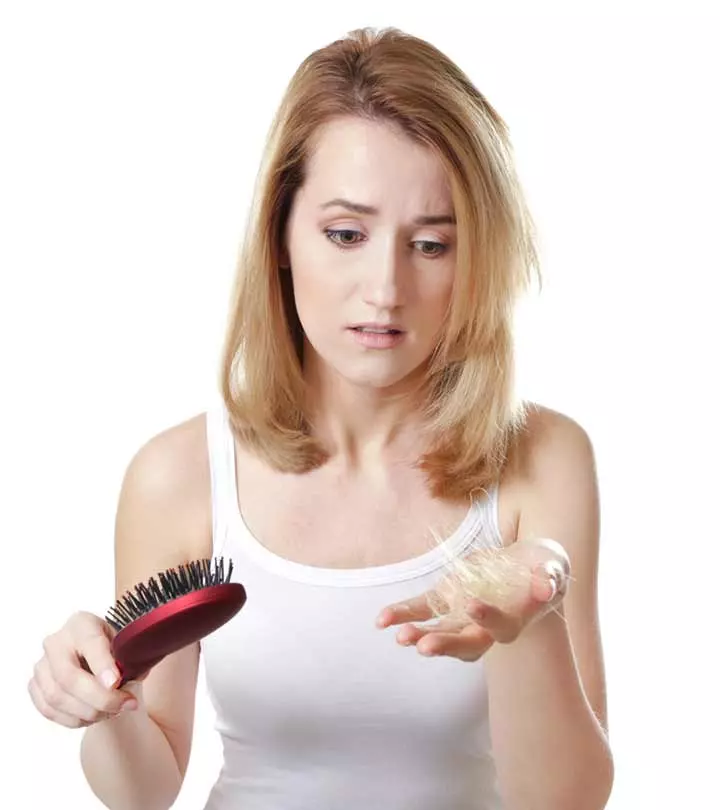
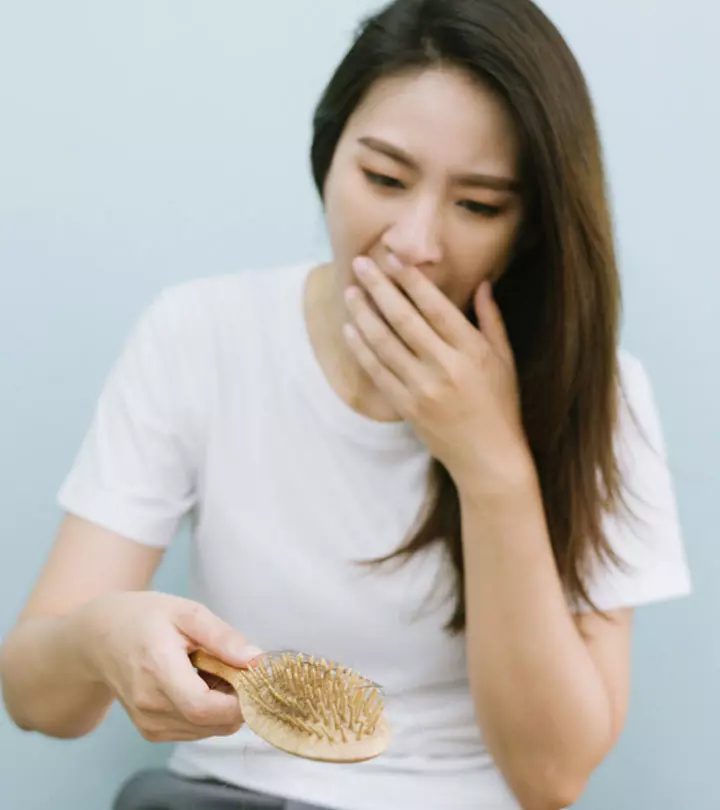
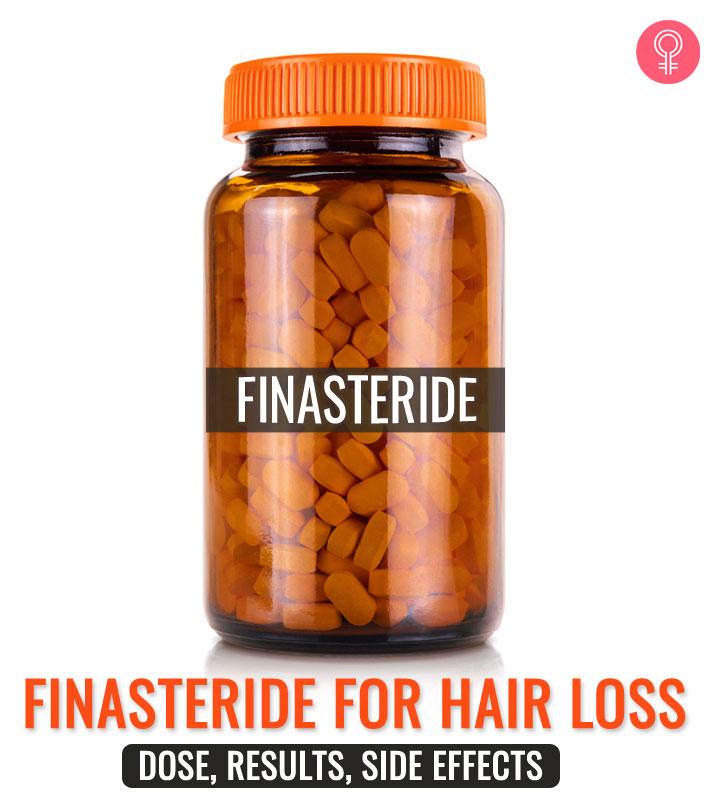


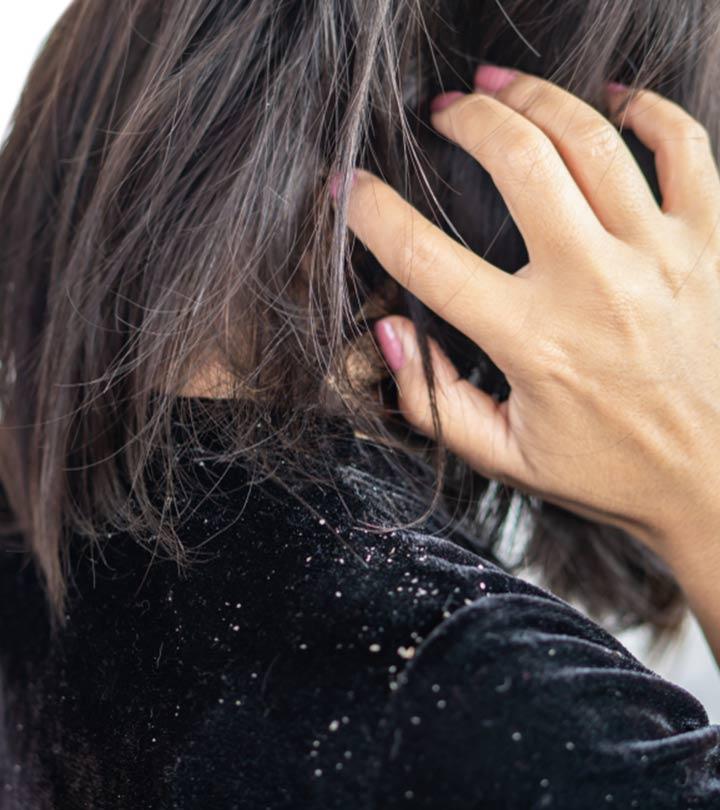


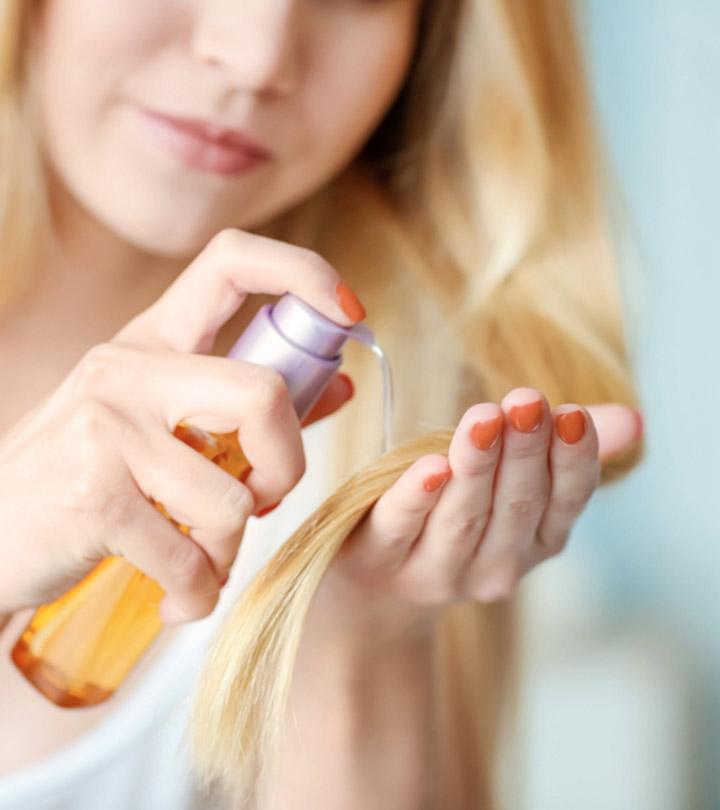
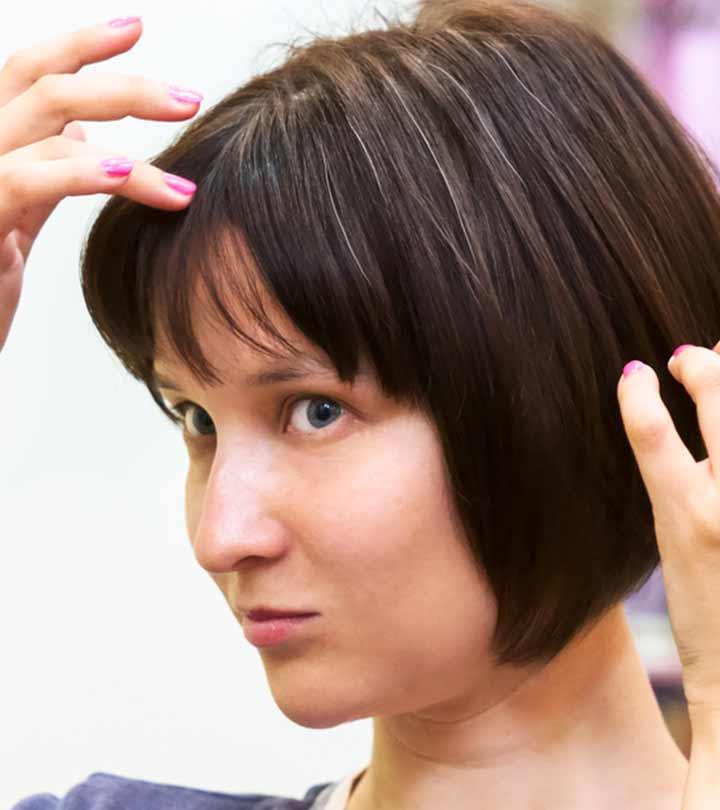

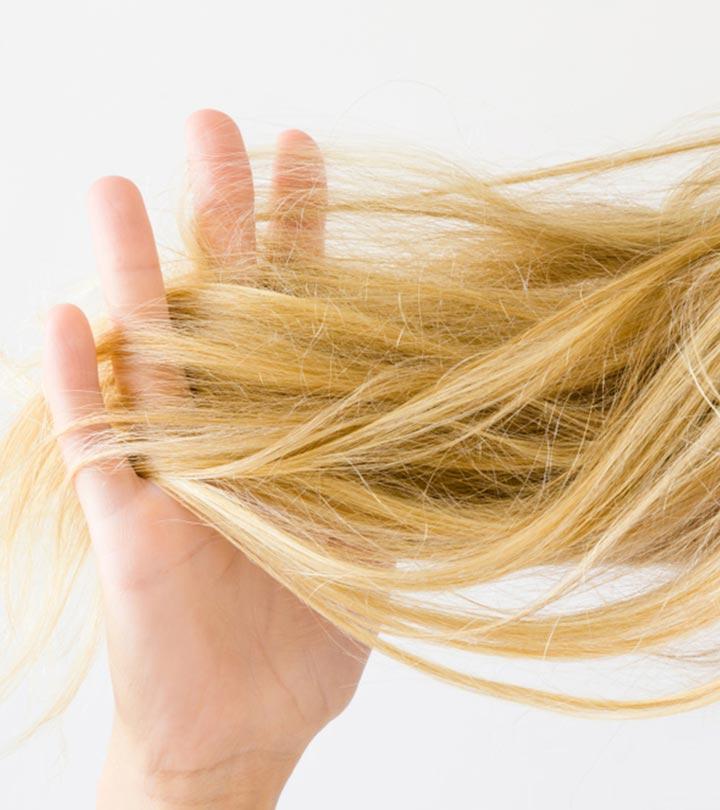


Community Experiences
Join the conversation and become a part of our empowering community! Share your stories, experiences, and insights to connect with other beauty, lifestyle, and health enthusiasts.